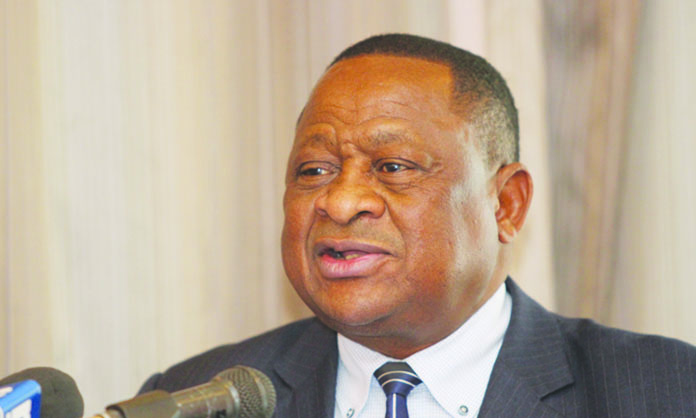The Ministry of Health and Social Services unveiled a series of initiatives aimed at strengthening the country’s healthcare system in Windhoek yesterday.
The developments were officially launched during a ceremony attended by minister of health and social services Kalumbi Shangula.
The minister emphasised the importance of the initiatives in expanding access to quality healthcare, while ensuring a robust and responsive healthcare system.
A highlight of the event was the introduction of the national surgical, obstetric and anaesthesia plan (NSOAP), which is set to address the challenges associated with the provision of these healthcare services.
Shangula said this plan is particularly significant, given the compounded challenges brought about by the Covid-19 pandemic.
“Namibia has been lauded for the remarkable strides it has made in reducing maternal mortality and managing communicable diseases like HIV in which we have reached epidemic control.
“However, we are mindful that more work remains to be done,” he said.
Shangula said the NSOAP tackles six vital healthcare system domains, including surgical infrastructure, workforce, and financing.
The plan is set to be implemented in three stages, he said.
Shangula said the health ministry, in collaboration with its partners, is committed to allocating necessary resources and monitoring the implementation process.
In addition to the NSOAP, the ministry introduced the Infection Prevention and Control (IPC) action plan.
“We have also completed the Infection Prevention and Control action plan and the revised guidelines for IPC, operation theatre and central sterile services department . . .
“These plans and guidelines symbolise our unwavering commitment to ensuring equitable access to high-quality healthcare services, with a laser beam focus on strengthening the foundations and different pillars of our healthcare system,” he said.
The IPC action plan, informed by the World Health Organisation’s IPC assessment tool, is designed to strengthen the IPC programme, implement evidence-based interventions, enhance education and training for healthcare workers, improve surveillance and reporting systems, and enhance monitoring and evaluation.
Shangula called upon all healthcare workers to work together to ensure the success of these initiatives.
He expressed gratitude to the stakeholders which contributed to their development.
World Health Organisation officer Mary Brantuo said IPC is foundational to patient safety and delivering high-quality care to everyone served by health services based on data from 2021 to 2022 among 166 countries.
“Approximately one in 10 countries do not have any national IPC programme or operational plan, and one in four countries has a programme, which is not fully implemented.
“Only 38% of countries reported having an IPC programme fully implemented at national as well as at healthcare facility level nationwide, with the vast majority representing high-income countries,” she said.
“Recognising the gaps in IPC programmes and practices revealed by the devastating impact of the Covid-19 pandemic and the increasing burden of infection and antimicrobial resistance associated with healthcare delivery, a resolution on IPC was presented and adopted by consensus at the 75th World Health Assembly in May 2022.”
Stay informed with The Namibian – your source for credible journalism. Get in-depth reporting and opinions for
only N$85 a month. Invest in journalism, invest in democracy –
Subscribe Now!






